Nutrition Will Suffer as Global Warming Affects Diet
By 2050, heat waves, floods and other climate change effects won’t be the only worry.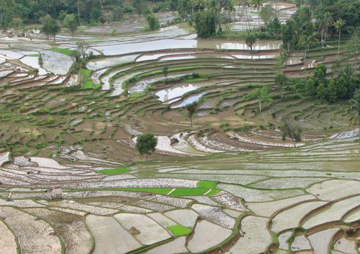 Rice, here in Indonesia, is one of the staples a warming climate will affect. (Dohduhdah / Wikimedia Commons)
Rice, here in Indonesia, is one of the staples a warming climate will affect. (Dohduhdah / Wikimedia Commons)
By Tim Radford / Climate News Network
Global warming and climate change are not the only threats linked to greenhouse gas emissions: there is also the knowledge that warming affects diet.
Higher levels of carbon dioxide in the atmosphere also mean that wheat, rice, maize, potatoes and other staples will grow with lower levels of protein – and by 2050, an extra 150 million people in 47 countries will be at greater risk of malnutrition.
Four out of five people on the planet depend mostly on grain staples and legumes for dietary protein. The UN estimates that poor nutrition already accounts for around 3 million deaths among young children every year, and experiments show that higher carbon dioxide levels in the atmosphere are associated with protein losses of around 5%.
“This study highlights the need for countries that are most at risk to actively monitor their populations’ nutritional sufficiency, and, more fundamentally, the need for countries to curb human-caused CO2 emissions,” said Samuel Myers, a research scientist in the department of environmental health at Harvard University in the US.
He and colleagues report in the journal Environmental Health Perspectives that tests of crops grown under high levels of atmospheric carbon dioxide show protein decreases of up to 15%.
The researchers then used available data to calculate the effect of such losses on overall protein intake – which varies from region to region, according to the mix of crops, and other dietary supplements.
They assumed no change in animal protein, or in protein in nuts, and then they looked at the probable impact on human health in the coming decades, as humans continue to burn fossil fuels, release greenhouse gases into the atmosphere, and raise planetary average temperatures.
Researchers have repeatedly warned that rising temperatures – and particularly greater frequencies and intensities of heat waves, droughts and floods – will threaten global food security: they will reduce fruit and vegetable yields, hit grain crop harvests and in particular affect wheat harvests in one of the most populous – and poorest – nations on the planet.
Ironically, other researchers have repeatedly demonstrated that a switch from a meat to a plant-based diet is likely to become more important than ever in combating climate change and reducing emissions from agriculture.
So protein deficiencies in crop yields could only make an already bad situation worse for the world’s poorest.
And there is a second challenge, this time of mineral deficiency. In another journal, Geohealth, Dr Myers and a different set of colleagues warn that higher atmospheric carbon dioxide levels are also associated with lower iron content in food crop staples.
More than 350 million children and more than a billion young women of child-bearing age already live in countries with high levels of anaemia: in a greenhouse world, these will face another 3.8% iron deficiency in their staple diet.
“Strategies to maintain adequate diets need to focus on the most vulnerable countries and populations, and thought must be given to reducing vulnerability to nutrient deficiencies through supporting more diverse and nutritious diets, enriching the nutritional content of staple crops, and breeding crops less sensitive to these CO2 effects,” Dr Myers said.
“And, of course, we need to dramatically reduce global CO2 emissions as quickly as possible.”
Your support matters…Independent journalism is under threat and overshadowed by heavily funded mainstream media.
You can help level the playing field. Become a member.
Your tax-deductible contribution keeps us digging beneath the headlines to give you thought-provoking, investigative reporting and analysis that unearths what's really happening- without compromise.
Give today to support our courageous, independent journalists.
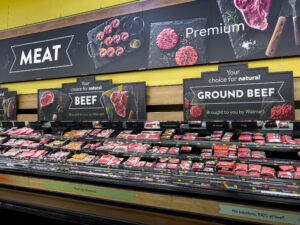
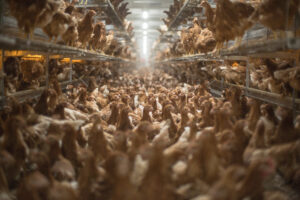
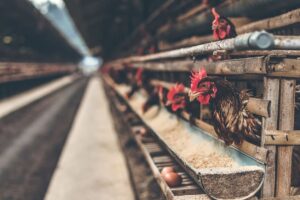

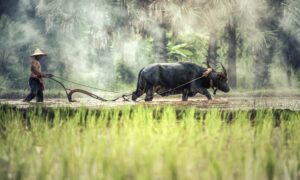

You need to be a supporter to comment.
There are currently no responses to this article.
Be the first to respond.